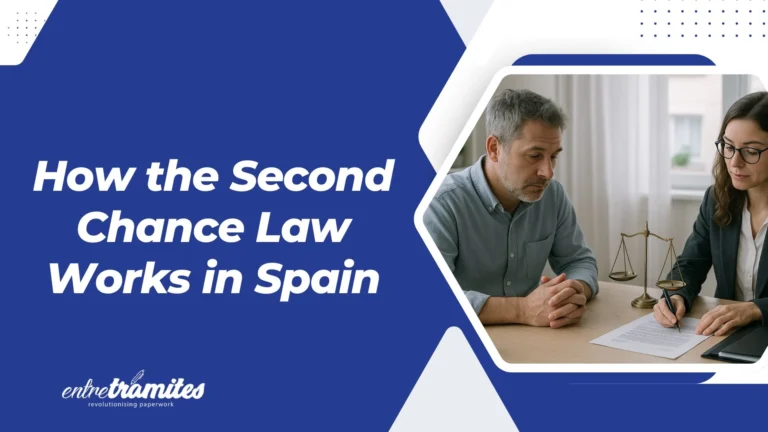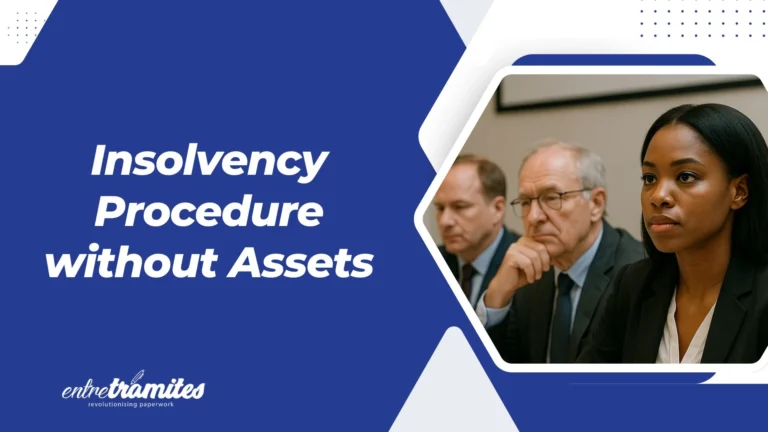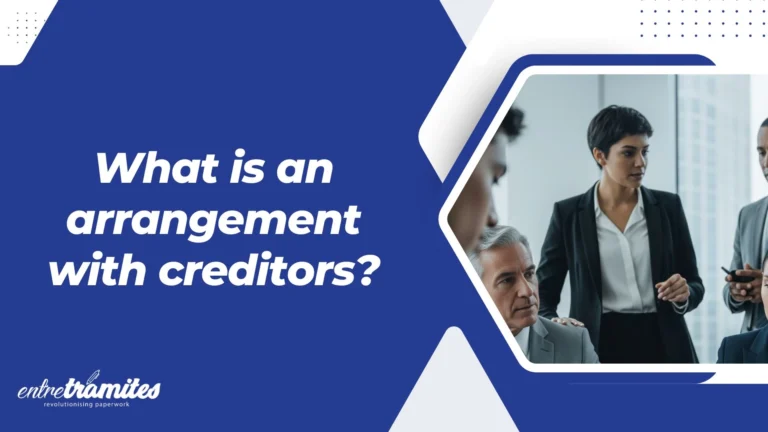The Second Chance Law in Spain is a legal mechanism aimed at helping individuals and the self-employed to free themselves from unsustainable debts and get a financial fresh start. In 2025, this tool will continue to be key for those who are going through extreme economic situations, such as job loss, drop in income or business failures.
Below, we explain how the Second Chance Law works, what this legal procedure consists of, what its requirements are and how to access its benefits today.
What is the Second Chance Law in Spain?
The second chance law, introduced by Law 25/2015 in Spanish Ley 25/2025 and updated through the Recast Insolvency Law and Law 16/2022 in Spanish Ley 16/2022, is a legal mechanism designed to help individuals and self-employed workers (autónomos) cancel part or all of their debt when they are in a situation of genuine insolvency and have acted in good faith.
It aims to provide a legal escape from financial ruin, allowing debtors to renegotiate, liquidate or be exempted from their obligations, and ultimately reintegrate into the economy with a clean financial slate.
How Does the Second Chance Law Work?
The process is composed of several mandatory steps that need to be followed carefully:
Declaration of Insolvency
The debtor must prove they are unable to meet current or future payment obligations and that they have acted in good faith.
Filing for the Microenterprise Procedure or Insolvency Proceedings
Since 2023, individuals and freelancers can apply online through the Business Registry portal in Spanish Registro mercantil using the special microenterprise procedure. Alternatively, they may initiate insolvency proceedings in the commercial court.
Asset Liquidation (if applicable)
In some cases, the debtor’s assets are liquidated. However, after the 2022 reform, it is possible to keep the main residence under specific conditions.
Debt Discharge (Exoneration of Unsatisfied Liabilities)
This is the final stage. The court may cancel debts either immediately (with asset liquidation) or under a payment plan of up to five years.
Requirements to Apply for the Second Chance Law in 2025
To qualify for the second chance law, applicants must meet these conditions:
- Be a natural person (individual or self-employed).
- Reside in Spain.
- Prove real insolvency and good faith.
- Owe at least two debts exceeding €5,000 each and totaling less than €5 million.
- Not have a criminal record for economic crimes (fraud, concealment of assets, etc.).
- Not have used this law within the last 5 years.
- Not have refused a suitable job offer in the last 4 years.
- Cooperate fully throughout the process.
Important: Not all debts can be discharged. Exceptions include child support, serious administrative penalties, and part of debts with the Tax Agency or Social Security (though these may be rescheduled).
Main Benefits of the Second Chance Law
When applied correctly, this law offers substantial advantages:
- Partial or total cancellation of unpayable debts.
- Avoidance of wage garnishments and asset seizures.
- Protection of the debtor’s primary residence (if applicable).
- Elimination of creditor harassment.
- A fresh financial start, free of negative credit history.
Real case example: In 2024, thousands of freelancers affected by post-pandemic closures successfully used the second chance law to write off personal and tax debts.
How Long Does the Process Take?
Timelines may vary depending on the case:
- Simplified process: Usually between 6 and 12 months.
- Payment plans: Can extend up to 5 years.
Professional legal guidance is essential to avoid mistakes that could delay or disqualify the procedure.
Frequently Asked Questions (FAQs)
Can I cancel debts with the Tax Agency under the Second Chance Law?
Not entirely. Some public debts can be restructured or postponed, but most are not exonerable. They can, however, be included in the payment plan.
Can I keep my home?
Yes, under certain conditions. If the mortgage does not significantly exceed the property’s value and it is essential for family stability, you might retain your home.
Which debts are non-cancellable?
Debts related to child support, criminal penalties, and serious public fines are excluded from the exoneration.
In addition to the Second Chance Law, there are other initiatives that can help the self-employed and SMEs to improve their financial situation. One of them is the Digital Kit programme, which offers grants of up to €12,000 for the digitalisation of businesses. This programme is aimed at self-employed and small businesses looking to improve their online presence, implement business management solutions or strengthen their cybersecurity.
Regaining control of your finances is possible. Knowing how the Second Chance Law works gives you the tools to face your debts with a legal and realistic solution. In 2025, this legislation will still be a vital resource for those who need a fresh start with legal and human support. If you are facing a situation of over-indebtedness, you are not alone: seek professional help and take the first step towards your financial freedom.
If you need personalised assistance, at Entre Trámites we offer management and tax consultancy services for the self-employed and SMEs. You can also contact us directly through this contact Form for us to call you, or if you prefer, you can schedule a free consultation or write to us on WhatsApp.




